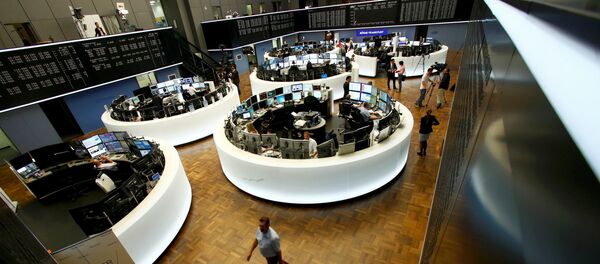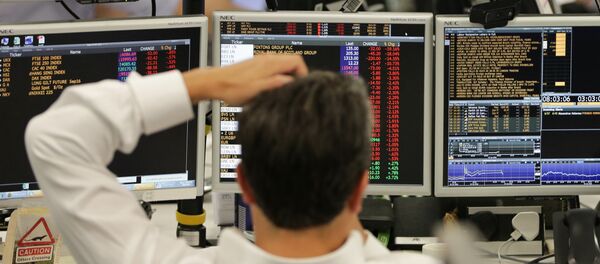Kristian Rouz – Global stock markets, currency trading and crude oil have all shrugged off the Brexit-inflicted losses in a two-day winning streak just a week after the UK referendum.
Policy factors are among the most prominent ones, with the post-2008 monetary stimuli having exhausted their pro-growth momentum, whilst disruptions in international trade, caused by a stronger dollar, are another concern. As Brexit awareness fades from headlines, many advanced economies are still facing internal structural problems as well, and all of the aforementioned would be harder to blame on the UK’s vote.
During Wednesday-Thursday trading sessions on Wall Street and in Asia-Pacific, stocks rallied massively, as investors have demonstrated a renewed appetite for risk and return-on-investment (ROI), effectively erasing concerns of Brexit as negatively affecting the global economy. The British pound also advanced, rendering international currency trading more sustainable.
Meanwhile, a new portion of US macro data pointed to a coming recession once again, stirring speculation of another round of quantitative easing possibly implemented by the Federal Reserve closer to the year’s end.
"While the full consequences of Brexit are still uncertain, the one thing it has accomplished very successfully is dropping global bond yields to new lows and keeping global monetary policy looser for longer," Angus Nicholson of Melbourne-based financial trading firm IG said. "Negative yielding government debt has surged… in such a situation, the drive for yield has never been stronger, which has seen people piling into dip-buying with little thought for the fundamental picture."
Crude oil prices rose a massive 4.2 percent in New York over the past two sessions after the US Energy Information Administration reported a decline in oil inventories, whilst the oil rig count in North America barely increased over the past several months, suggesting the supply-demand stabilisation, pushing oil prices higher in the near-to-mid-term. A positive sign for advanced economies as propelling inflation (and, therefore, economic growth) higher, recent dynamics in oil prices also supported emerging markets.
During this quarter, oil prices rose 26 percent compared to an 80 percent rebound in 1Q16, as the supply-side slump has not gained enough further support from manufacturing in advanced economies.
“We could see supplies continue to draw down and oil remain relatively high compared with its recent price,” Paul Nolte of Chicago-based Kingsview Asset Management said.
“Now that the dust has settled, people are looking around and saying ‘well, rates will stay low, so I can go back to buying dividend-paying stocks,” Nolte said.
US imports were reported to have slumped in May in the Port Authority of New York and New Jersey by 4.7 percent year-on-year, adding to the concerns of economic expansion in the 2Q16. The explanation is that the dollar has weakened slightly during the outgoing quarter, whilst US consumer demand underperformed amidst the still sluggish inflation. Ports in Virginia and Savannah, GA, also reported declines in inbound shipments by 2.3 percent and 5 percent, respectively.
"The peak season has disappeared. Carriers have already taken out capacity, and if there was a strong peak season coming, they wouldn't do that. It's partly overall trade declining, but it's also that importers simply bought too much," Ben Hackett of research company Hackett Associates said.
With 2Q16 US growth figures in focus, Brexit is almost all but forgotten by now in both trading and media coverage, which is only an indication it shouldn’t have been that much of a major sensation in the first place.





